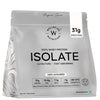Whey protein has gained significant popularity among fitness enthusiasts and health-conscious individuals alike. Known for its high nutritional value and rapid absorption, whey protein is a complete protein derived from milk. However, its benefits extend beyond muscle building and recovery; it also plays a crucial role in digestive health.
In this blog, we will explore the relationship between whey protein and digestive health, examining its effects on gut function, digestion, and overall wellness.
Understanding Whey Protein
Whey protein is one of the two primary proteins found in milk, the other being casein. It is rich in essential amino acids, particularly branched-chain amino acids (BCAAs), which are vital for muscle repair and growth. There are three main types of whey protein:
- Whey Protein Concentrate (WPC): Contains around 70-80% protein, with some fats and carbohydrates. It retains more of the beneficial nutrients found in whey.
- Whey Protein Isolate (WPI): Processed to remove most of the fat and lactose, it typically contains around 90% protein. This makes it an excellent choice for those who are lactose intolerant.
- Whey Protein Hydrolysate (WPH): Pre-digested for faster absorption and instant formulas. It's considered a top supplement for muscle development.
Whey Protein for Digestive Health: What You Should Know
Promotes Gut Health
Whey protein is known to enhance gut health through its high levels of immunoglobulins and lactoferrin, which are beneficial for the immune system. These components help maintain a healthy gut microbiome, which is crucial for overall digestive health. A balanced gut microbiome can aid in digestion, reduce inflammation, and support the immune system [NIH].
Supports Protein Digestion
Whey protein is rapidly digested and absorbed, making it an excellent source of protein for those who need quick nutrition. This rapid absorption is beneficial for muscle recovery post-exercise, but it also plays a role in digestive health. When whey protein is consumed, it stimulates gastric acid production, which aids in the digestion of other food sources in the stomach. This can help improve overall digestion and nutrient absorption.
Helps Manage Gut Disorders
Whey protein may benefit individuals suffering from gut disorders, such as irritable bowel syndrome (IBS) or inflammatory bowel disease (IBD). Research indicates that whey protein can help reduce inflammation in the gut, promoting better gut health and potentially alleviating symptoms associated with these conditions [NIH]. Its anti-inflammatory properties may help in managing symptoms like bloating, gas, and abdominal pain.
Enhances Satiety
Whey protein can help increase feelings of fullness and satiety, which may aid in weight management. A study found that whey protein significantly increased satiety compared to carbohydrates and casein, helping individuals consume fewer calories overall [NIH]. Improved satiety can lead to healthier eating habits, further supporting digestive health.
Supports Muscle Maintenance and Repair
Adequate protein intake, including whey protein, is essential for maintaining muscle mass, especially as we age. Muscle loss can negatively affect digestion, as muscle contractions play a crucial role in moving food through the digestive tract. By supporting muscle maintenance and repair, whey protein indirectly promotes better digestive function.
Digestive Enzymes and Whey Protein
Another important aspect of whey protein and digestive health is its interaction with digestive enzymes. Whey protein can stimulate the production of digestive enzymes, which are essential for breaking down food in the gut. Enhanced enzyme activity can lead to better digestion and absorption of nutrients, making whey protein not only beneficial for muscle recovery but also for overall digestive wellness.
Whey Protein and Lactose Intolerance
One common concern surrounding whey protein is its lactose content. For individuals with whey protein lactose intolerance, consuming whey protein may lead to discomfort, including symptoms of bloating and digestive distress. However, not all whey protein products are created equal.
Whey Protein Isolate is a purified form of whey that contains minimal lactose, making it more suitable for those sensitive to lactose. By opting for whey protein isolate, individuals can enjoy the benefits of this protein source without the digestive repercussions associated with lactose intolerance.
A Delicious Dietary Enhancement
- Smoothies and Shakes: One of the easiest ways to include whey protein in your diet is by adding it to smoothies or shakes. Combine it with fruits, vegetables, and healthy fats for a balanced meal or snack.
- Baking: You can incorporate whey protein powder into baked goods, such as pancakes, muffins, or protein bars, to boost their protein content without sacrificing taste.
- Soups and Sauces: Adding whey protein to soups and sauces can enhance their nutritional value. Just be sure to mix it in well to avoid clumping.
- Post-Workout Recovery: Consuming whey protein immediately after exercise can help optimize recovery and muscle repair, ensuring that your body gets the nutrients it needs when it needs them most.
Potential Side Effects To Be Aware Of
While whey protein is generally safe for most individuals, it is essential to consider potential side effects. Some people may experience digestive discomfort, such as whey protein bloating or gas, particularly if they consume large amounts or are sensitive to lactose. To minimize these effects, individuals can start with smaller servings and gradually increase their intake.
Additionally, individuals with milk allergies or severe lactose intolerance should avoid whey protein or opt for a lactose-free version like whey protein isolate.
Most importantly, always consult a healthcare professional before starting any new supplement regimen, especially if you have existing health conditions or dietary restrictions.
Conclusion
Whey protein offers a multitude of benefits for digestive health, making it a valuable addition to any diet. From promoting gut health and aiding in protein digestion to managing gut disorders and enhancing satiety, the advantages of whey protein extend far beyond muscle recovery. By incorporating whey protein into your diet thoughtfully, you can support your digestive health and overall well-being.
FAQs
1. Can Whey Protein Help with Bloating?
Whey protein can help reduce bloating, especially when consumed in its isolate form, which contains minimal lactose. It supports gut health and protein digestion, but for individuals with lactose sensitivity, it might cause discomfort. Choosing whey protein isolate or hydrolyzed whey can minimize bloating and digestive discomfort.
2. Is Whey Protein Suitable for People with Sensitive Stomachs?
Yes, whey protein is generally safe for people with sensitive stomachs, particularly when opting for whey protein isolate or hydrolyzed forms. These varieties have lower lactose content and are easier to digest, reducing the risk of stomach discomfort and bloating.
3. How Much Whey Protein Should I Consume for Digestive Health?
For optimal digestive health, aim for 20-30 grams of whey protein per serving, depending on your personal needs and activity level. This amount supports muscle repair and digestion while promoting a healthy gut microbiome. It's important to start with moderate servings to gauge your body's tolerance.
4. Does Whey Protein Affect Gut Bacteria?
Whey protein positively influences gut bacteria by supporting the growth of beneficial microbes. Its bioactive compounds, like lactoferrin and immunoglobulins, help maintain a balanced gut microbiome, which plays a crucial role in digestion and overall gut health.




























